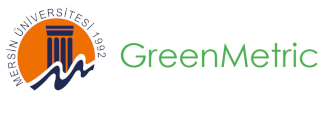Total Treated Organic Waste
[3] Waste (WS)
[3.4] Total volume organic waste treated
| Type of waste | amuount (ton) | ||||
| total | reduced | reused | down-cycled | up-cycled | |
| organic | 161 | 22 | 80 | 40 | 20 |
| – food waste | 58 | 10 | 20 | 20 | |
| – leaf, etc. | 100 | 10 | 40 | 40 | |
| – etc | 3 | 2 | – | ||
Description:
(Please describe total organic waste treated on your campus. The following is an example of the description. You can describe more related items if needed.)
Composting Organic Wastes at Mersin University: A Sustainable Approach
Mersin University has adopted a sustainable approach to manage organic waste, particularly from its cafeterias and canteens. The university utilizes a composting machine with a daily feeding capacity of 100 kg. This machine transforms organic waste into valuable compost, which serves as a rich soil conditioner and an eco-friendly alternative to chemical fertilizers. Notably, the composting process isn’t limited to cafeteria waste alone. It incorporates additional organic materials collected from the campus, including leaves, branches, and other agricultural residues. This holistic approach to composting ensures that a broader range of organic materials can be effectively repurposed, contributing to both waste reduction and soil enrichment.
Agricultural Waste Management: Upcycling and Downcycling Practices
In addition to cafeteria wastes, Mersin University actively manages agricultural waste generated across its campus, including pruning materials and hard woods. These materials are collected and accumulated in designated areas. What sets Mersin University’s approach apart is its commitment to the principles of upcycling and downcycling:
– Upcycling: While agricultural waste like leaves and smaller organic materials are repurposed through composting, the downcycling process ensures that these materials are diverted from traditional waste streams and turned into nutrient-rich compost, a far more environmentally friendly and resource-efficient alternative than their original form.
– Downcycling: Agricultural waste, such as hard woods and branches, which might otherwise be discarded or incinerated, are retained and sold to specific companies for recycling and repurposing. Through upcycling, these materials find new life as valuable products, extending their utility and value.
Mersin University’s commitment to upcycling and downcycling practices not only contributes to the efficient management of organic waste but also aligns with broader sustainability goals. It emphasizes resource conservation, waste reduction, and the creation of valuable, eco-friendly products, showcasing a holistic approach to environmental stewardship.
Additional evidence link (i.e., for videos, more images, or other files that are not included in this file):
